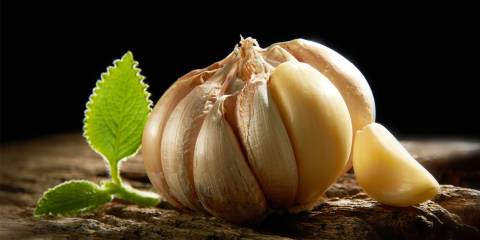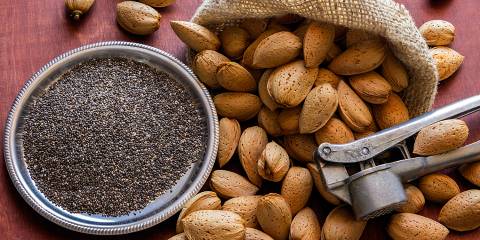Fat-soluble vitamin K is essential for the functioning of several proteins involved in blood clotting. It also plays an important role in bone health—it’s necessary for the synthesis of osteocalcin, the major noncollagen protein found in bones. Vitamin K also promotes healthy liver function.
Because vitamin K is widespread in foods, deficiency is uncommon in healthy adults. In fact, its presence in green, leafy vegetables may be one of the protective factors against osteoporosis in a vegetarian diet. Most of the body’s supply of vitamin K is synthesized by the “friendly” bacteria, or flora, which are present in the intestines. Therefore, taking antibiotics can interfere with this process and vitamin K’s absorption.
If you take warfarin (Coumadin) to prevent harmful blood clots from forming, talk with your healthcare provider about vitamin K in your diet and supplements. Generally, it is wise for those taking warfarin to limit intake of food high in K to no more than one serving a day. Limit foods that are moderately high in this vitamin to no more than three servings daily.
Food Sources
- Kale
Serving Size: 1 Cup
Vitamin K (mcg): 547
- Swiss chard, raw
Serving Size: 1 cup
Vitamin K (mcg): 299
- Parsley, raw
Serving Size: 1/4 cup
Vitamin K (mcg): 246
- Broccoli, cooked
Serving Size: 1 cup, chopped
Vitamin K (mcg): 220
- Spinach, raw
Serving Size: 1 cup
Vitamin K (mcg): 145
- Soybean oil
Serving Size: 1 tablespoon
Vitamin K (mcg): 25
The Encyclopedia of Healing Foods by Michael Murray, ND, Joseph Pizzorno, ND, and Lara Pizzorno, MA, LMT ($39.95, Atria, 2005)
Prescription for Nutritional Healing by Phyllis A. Balch, CNC ($29.95, Penguin Group/Avery, 2006)
“Vitamin K,” Linus Pauling Institute, http://lpi.oregonstate.edu, 5/08
“Vitamin K,” Office of Dietary Supplements, NIH Clinical Center, National Institutes of Health, http://ods.od.nih.gov



